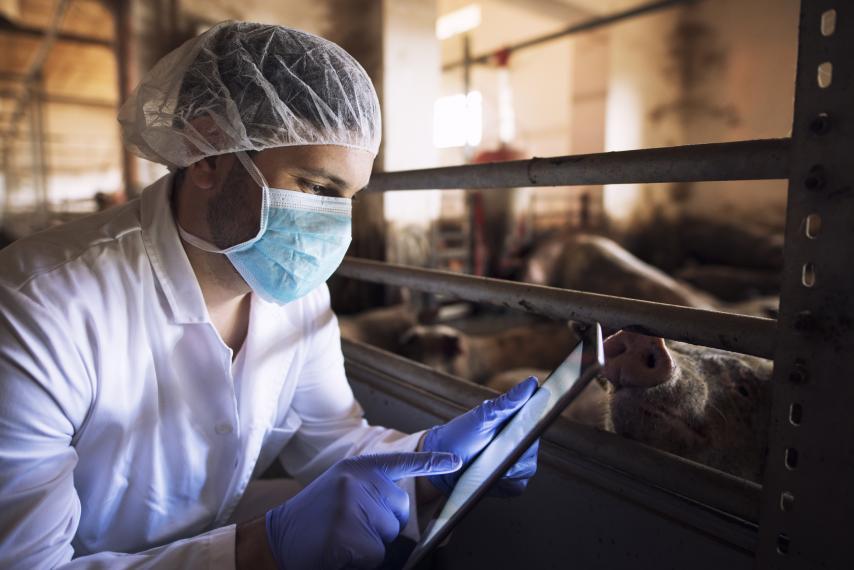Responsible AI for One Health

CARE-AI and OHI fund two emerging research areas to help understand disease outbreaks.
The University of Guelph’s Centre for Advancing Responsible and Ethical Artificial Intelligence (CARE-AI) and One Health Institute (OHI) have awarded nearly $75,000 to two research projects that integrate a One Health approach with the responsible development and application of artificial intelligence.
While both CARE-AI and OHI have distinct missions, they each share common values. They bridge disciplinary boundaries and integrate knowledge and research to address complex health challenges.
The CARE-AI/OHI seed fund, titled Responsible AI for One Health Grant, was created to enhance the competitiveness of new external operating grant applications submitted by U of G faculty members and to promote student learning across multiple research disciplines.
Ontario Veterinary College professor Olaf Berke will study the relationship between COVID-19 fatalities and long-term exposure to atmospheric pollution associated with food animal farming. Supported by the grant, Berke and team will use machine learning approaches to analyze data on COVID-19 morbidity and mortality, farm animal census, atmospheric pollution, and socio-economic and population. Ultimately, the project aims to bring greater clarity to how, where, and when COVID-19 is transmitted and how it may or may not be controlled. Berke’s project is unique because very little research of this kind has been done, with only preliminary results in a few countries. These findings will help researchers to better understand the relationship between food animal farming and human illness associated with COVID-19.
“Early results from studies in Europe find associations between severe COVID-19 outcomes and chronic exposure to livestock air pollutants,” says Berke. “While those are exploratory findings, they present an opportunity to better understand the regional fluctuations between COVID-19 case severity and help us better understand the virus, critical to preventing its spread.”
Computer science professor Rozita Dara is developing user-centered integrated surveillance systems to support diverse stakeholder decision-making during avian influenza outbreaks. Now, with the CARE-AI grant, Dara and her team will be able to integrate past data collection tools, including a machine learning-based prototype surveillance system, historical data, and Twitter patterns, to build a user-friendly tool that integrates and utilizes this information while also bridging knowledge gaps.
What makes Dara’s system unique is its usability and applicability for diverse decision-making needs by working with a variety of end-users to ensure user experience, design, and requirements are comprehensive; in the past, such systems have tended to cater to one audience group. Ultimately, the project is anticipated to provide accurate, comprehensive information for a range of audiences, from public health officials to farmers.
“Avian influenza outbreaks can be economically devastating and have significant impact on our health if transmitted to humans,” says Dara. “Outbreaks usually occur in an unpredictable manner. Less attention has been given to designing surveillance decision support systems that can help predict the outbreaks and assist with timely decision making– which is our goal – utilizing a novel One Health approach.”